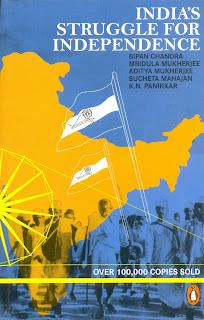
One of the resolutions that I had taken for this year was to improve my reading habits and expand the range of topics and authors. Bengali literature was one of the targets that I had kept for myself. Though I have already dabbled a bit with Tagore’s writings, this book of Bankim Chandra is my first proper foray into this much romanticized portion of Indian literature. I am happy in the end for having taken up this book.
Bankim Chandra Chattopadhyay is one of the leading names in Bengali Classical literary stage and this novel ‘Rajmohan’s Wife’ is his only work in English. There are quite a lot of debates about why he didn’t continue writing in English choosing instead to write only in his mother tongue, Bengali. Let’s leave the debate for others and get into knowing about this much-acclaimed work of his.
Matangini, the character that lends the title to the book, is the wife of Rajmohan, a good-for-nothing brute, incapable of earning a living in honest and proper ways. Matangini, being a woman of virtues, bears his oppressive nature silently. Madhav Ghose, the heir of a rich family, is the husband of Matangini’s sister Hemangini. Caring for Matangini’s family, he takes them with him to his native place where he offers a job to Rajmohan, thus providing for his family. Rajmohan is paranoid, unethical, and of the nature that can bite the very hands that feed him. One day when Rajmohan conspires against Madhav, joining with some other forces that want to grab the wealth of Madhav, Matangini makes an uncharacteristic journey alone in the dark and dangerous night to Madhav’s place to warn him, thus warding off the calamity that could have befallen Madhav. It turns out also to be the night when her love and pent up passions for her brother-in-law Madhav are expressed for the first time. What happens after these two events is what the novel is all about.
As for the quality of writing, there was never a dull moment in the book. Starting from the portrayal of the characters to the climax, it is an absolute roller-coaster of a book. Emotions, virtues, melodrama, peeks into the culture of bygone days, thrill, humor, sarcasm – it is all there in this book. But there are some occasional grammatical errors, which, when pointed out by English readers, could have been a cause in Bankim’s dropping his attempts to write in English. Remember, this book was written in 1864, more than 150 years ago, when it was a thing of astonishment to see an Indian using the language of his rulers to express his ideas and opinions, let alone attempt a full-length novel.
There are some negative points though. This is not a ‘full-length’ novel, in fact. For all his vivid ways of depicting characters, building up the tempo and portrayal of the emotions, Bankim ends the novel in an abrupt fashion. Just as you start warming up for a more delicious feast, the climax is brought up, as if somebody waved the checkered flag just on the tenth lap of a Formula One race. He finishes the book in a hurry, noting down the fate of the characters in a line or two. Just imagine! Having the chance to dwell on the emotional high-drama of the pure love between Madhav and Matangini, the possibility of setting an example for the womenfolk of those days by letting us know the decision of Matangini about her relationship with the villainous Rajmohan, are just two reasons that could have added at least another couple of interesting chapters to the book.
But the book having come at a time it did, it wouldn’t have been possible for Bankim to portray the heroine as anything less than the highly noble and virtuous female that she is. Not just Matangini, some of the other characters in the book, Kanak and Tara, are also portrayed to be women of virtue and moral courage, who nevertheless abide by the customs of the time, leading silent and submissive lives in the shadows of their unworthy husbands. Also, the way in which the author finishes off his note on the life and future of our lovable Matangini, proves that this was not a book that intended to break a new path for the women of high character stuck in a moral dilemma, but a book that wanted to glorify the oft-praised qualities of women – sacrifice and chastity.
All in all, this book will be a breezy read and a worthy addition to your collection.






